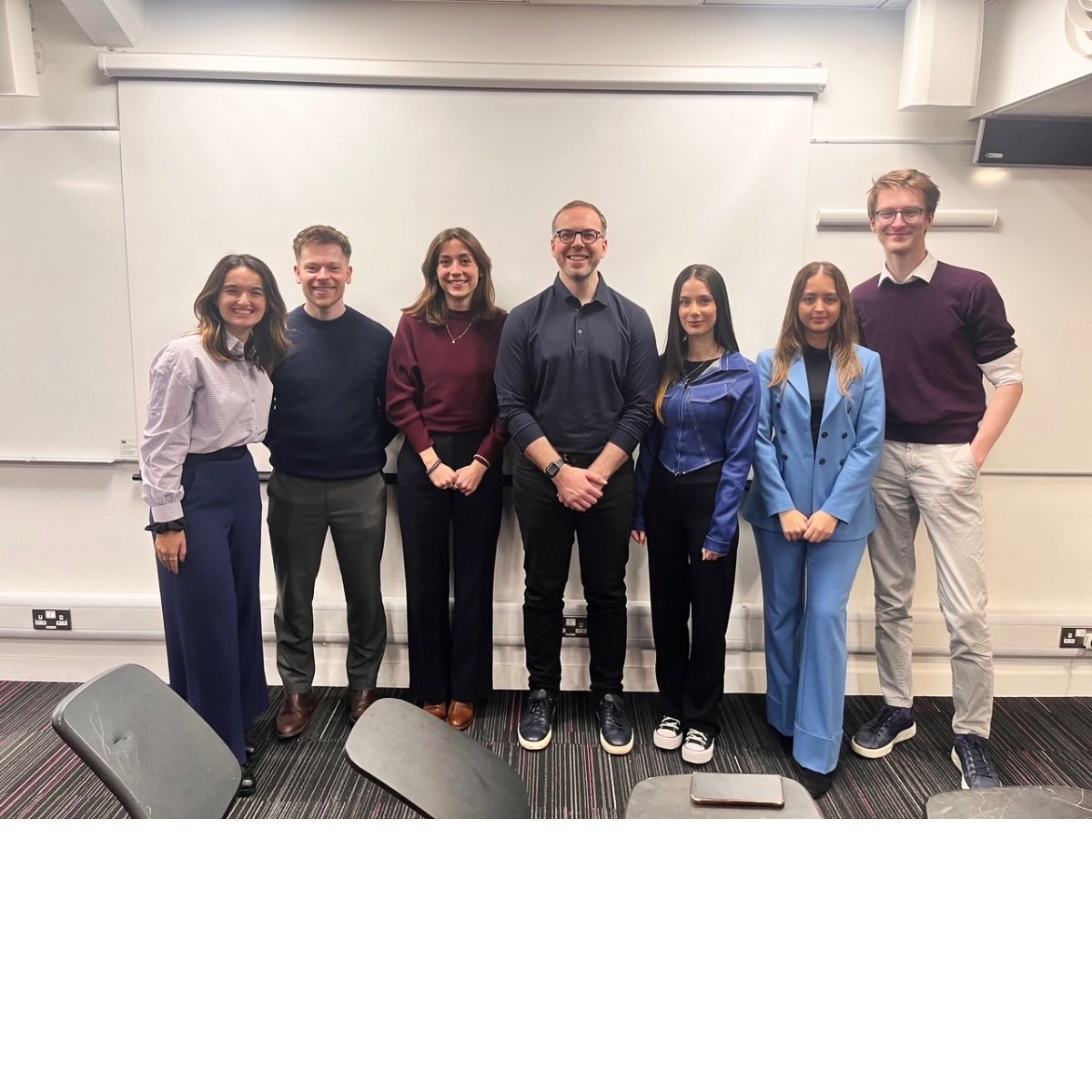Reimagining Defence Procurement
A Leap into the Future with AI
In a recent Hacking for MoD (H4MOD) course, a team of postgraduate students embarked on a challenge to enhance the UK's credibility as an ally and strengthen its deterrence capabilities in the 21st Century. What initially began as an exploration of digital technology to deter adversaries, evolved into a focussed examination of the existing procurement and commercial processes within the defence sector. This blog delves into the journey of the student team, the identified problem, their innovative solution, and the impact of modernising defence procurement.
Team AANT (Accelerated Acquisition of New Tech) comprised 6 students from the Department of War Studies, King’s College London: Walt De Bosscher, Camille Dabas, Nuran El Fawal, Darius Koelsch, Esma Kavak, and Cristina De Masi. Over the course of 12 weeks, they interviewed 82 people across defence and industry to learn about their problem and develop and test solution ideas.
Identifying the Problem
The team's success pivoted on meticulous problem identification. The team initially explored enhancing interoperability among allies, but shifted their focus to the existing defence procurement systems that are not equipped for current and future requirements. In a departure from traditional approaches fixated on regulatory reform, the team prioritised individuals within the procurement process. In particular, they focussed on the pivotal relationship between Commercial and Project Management teams within Defence, who together are responsible for ensuring efficient project delivery.
Contrary to initial perceptions about Commercial Teams being less approachable and inclined towards risk avoidance, the team uncovered that the primary cause of delays was the accessibility of information on the project management side. This challenge was specifically linked to the use of the eProcurement Platform, an important tool for project progression. Interestingly, the team discovered that Project Managers did not have the necessary skills or tools to find relevant information to support their effective management of the commercial aspects of procurement. Knowledge in Defence (KiD), an official platform housing all policy and guidance governing defence’s project delivery and commercial functions, remained underutilised - primarily because the right information can often be too hard to find.
“The team did an excellent job in turning my broader problem into something more tangible where they could have an impact. I think strategy people like me, and policy people generally, can sometimes get too caught up with the bigger picture and neglect to think about how this translates on the ground.”
An AI Powered Solution: Bridging Information Gaps
The team's solution was an innovative artificial intelligence (AI) tool designed to synthesise and centralise information from different sources within KiD. This tool provides tailored answers to specific questions, which addresses the pain points of information accessibility and search effectiveness within the platform. The proposed solution took shape as a chatbot connected to KiD, offering defence personnel and industry professionals a user-friendly interface to inquire about procurement, commercial finance, and innovation processes. This tool aims not only to assist users, but also to provide valuable insights for refining KiD based on user interactions. Initial tests revealed considerable enthusiasm for the solution among end users.
Accelerating Defence Processes
Implementing the team’s AI-powered solution promises immediate benefits by reducing the workload on commercial and finance teams, and fostering better understanding among users, thereby speeding up the procurement process significantly. What’s more, if successfully implemented, the team’s solution could serve as a case study demonstrating the effectiveness of AI tools in improving work processes.
“The team’s solution will help raise awareness and knowledge of how the procurement system works, enabling more effective and rapid project delivery. In addition, an indirect effect will demonstrate how an AI tool can be used to enhance roles and operations, encouraging more people towards similar initiatives for their own work”
Dan anticipates a six-month timeline, acknowledging that the pace would be influenced by the willingness of defence teams to embrace technological change.
Nurturing Innovative Thinking
Reflecting on the overall experience, Dan emphasised the unique values offered by the H4MOD course. The opportunity to think differently, approach problems from various angles, and benefit from diverse backgrounds and perspectives proved invaluable. The absence of preconceived notions associated with traditional management consultancies allowed the team to think radically and differently.
Dan noted further; “I would say that the weekly chats with the team were also fantastic, they consistently challenged me in my thinking and helped me to think about the problem differently”.
The H4MOD course emerges as a catalyst for innovative thinking, challenging the norms of traditional defence problem solving. The team's exploration of AI-powered solutions for defence procurement showcases the potential for transformative change within bureaucratic systems. As the defence sector grapples with the challenges of maintaining credibility and adapting to emerging threats, initiatives like H4MOD provide a platform for fresh perspectives and innovative solutions that could reshape the future of national defence.
“The team interviewed 82 people enabling a deep understanding of the problem and people’s issues and concerns around this. This is a central pillar of user-centred and evidence-led policymaking which I have neither the time nor resources to adequately achieve. ”
Do you want to work with a team of talented students? Click here to find out about being a Problem Sponsor.


